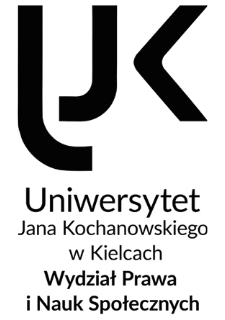Biblioteka Cyfrowa Uniwersytetu Jana Kochanowskiego udostępnia 13 367 obiektów cyfrowych
Obiekt
Tytuł: Realizacja prawa do sprawiedliwego procesu w obszarze procedur windykacyjnych w świetle Konstytucji RP, ustawodawstwa i orzecznictwa sądowego
Twórca:
Tytuł odmienny:
Abstrakt:
The right to a fair trial guarantees individuals the opportunity to effectively pursue their rights before a state authority that operates independently from the executive and legislative powers.. This right should be interpreted as both a fundamental human right and a safeguard for the protection of all rights vested in individuals. Contemporary regulations concerning the right to a fair trial are enshrined in the highest acts of government in each country, often in constitutions, as well as in international legal instruments In Poland, the right to a fair trial is primarily associated with the right to a court, which is explicitly expressed in the Constitution of the Republic of Poland of April 2, 1997. According to Article 45(1) of the Constitution of the Republic of Poland: Everyone shall have the right to have any case heard fairly and publicly, without undue delay, by an independent and impartial court specified by statute. The perception of the right to a fair trial evolves, although it may not be evident as the constitutional norms that constitute the law remain unchanged. An indication of this evolution is that legal solutions, which have been subsequently recognized as contradictory to the right to a fair trial, were widely accepted during their period of existence, both by legal doctrine and case law. The motivation behind conducting this research was to fill a gap that persists in Polish legal doctrine, which undoubtedly pertains to an issue that serves as a justified research field for a doctoral dissertation. The designated research objective was to develop the concept of the right to a fair trial in a practical context, as perceived by participants in legal proceedings, with particular emphasis on the impact of current legislation, legal doctrine, and case law on its current form. The first defined research problem was to demonstrate how the right to a fair trial is realized from the perspective of participants in judicial proceedings. The second problem was to present how the perception of the right to a fair trial has evolved from the same perspective. The analysis of the scientific literature leads to the conclusion that there is a lack of scholarly works addressing the implementation of the right to a fair trial under the current constitutional framework, with particular emphasis on the influence of legislation, legal doctrine, and case law on its current form, from the perspective of participants in judicial proceedings. Another gap exists in terms of the absence of analyses and scholarly works on how the perception of the right to a fair trial has evolved, also from the perspective of participants in legal proceedings. For the purpose of analyzing how the principle of the right to a fair trial is implemented, the debt collection industry will be examined. Mass creditors, also referred to as entities operating in the debt collection industry, are active participants in judicial proceedings and impose a significant burden on the entire judicial system. Their activities involve engaging in legal proceedings before the court. On the other side of the legal dispute, we have debtors who are often individual consumers. Debtors naturally become the opposing party in the judicial process. It was determined that creditors and debtors would constitute the appropriate research group for conducting an analysis on the practical implementation of the right to a fair trial. By examining the rights afforded to the parties involved in the legal process, conclusions can be drawn regarding the evolving perception of the right to a fair trial. The parties to the process, the relationship between them during and outside of the judicial proceedings, as well as the changes occurring within the scope that forms the research field for this dissertation, have been defined as the area of debt collection procedures within the topic of the study.
The structure of the work aims to facilitate the dissemination of knowledge within the scope of the topic stated in the title. The research problem addressed is unique, resulting from the combination of the extensive scholarly literature on the right to a fair trial and its practical implementation within the realm of debt collection procedures. It was necessary to provide a proper introduction to both of these issues. Therefore, the first and second chapters of the dissertation present the gathered knowledge, supplemented with the author's own reflections, existing scholarly contributions, comments, and conclusions. The third and fourth chapters present the collected information on the applicable legislation and case law in a chronological manner. The discussions undertaken in these chapters are crucial for addressing the formulated hypotheses and research questions. The primary research method employed was the legal-doctrinal method, which involved analyzing the existing legal provisions. This approach allowed for the identification of the general and specific characteristics of the examined law and legal institutions, enabling their subsequent comparison. The historical method was also utilized in this research, taking into account the factor of time and cultural changes. Through this method, the evolution of the right to a fair trial was described. Additionally, the empirical method was applied, aiming to make predictions regarding the future direction of the right to a fair trial within the realm of debt collection procedures.
Uwagi:
Identyfikator:
oai:bibliotekacyfrowa.ujk.edu.pl:10762
Katalog komputerowy:
Język:
Uzyskany tytuł:
Data uzyskania stopnia:
Instytucja nadająca tytuł:
Uniwersytet Jana Kochanowskiego w Kielcach
Promotor:
Jaskiernia, Jerzy (1950- ) Derlatka, Joanna. Promotor pomocniczy
Recenzent:
Szmyt, Andrzej Serzhanova, Viktoria
Dziedzina nauki:
Dyscyplina naukowa:
Wydział:
Wydział Prawa i Nauk Społecznych
Typ:
Prawa dostępu:
tylko w Oddziale Informacji Naukowej
Stan publikacji:
Kolekcje, do których przypisany jest obiekt:
- Biblioteka Cyfrowa Uniwersytetu Jana Kochanowskiego > Rozprawy doktorskie > Wydział Prawa i Nauk Społecznych
Data ostatniej modyfikacji:
29 sty 2026
Data dodania obiektu:
19 cze 2024
Liczba wyświetleń treści obiektu:
0
Wszystkie dostępne wersje tego obiektu:
https://bibliotekacyfrowa.ujk.edu.pl/publication/11387

